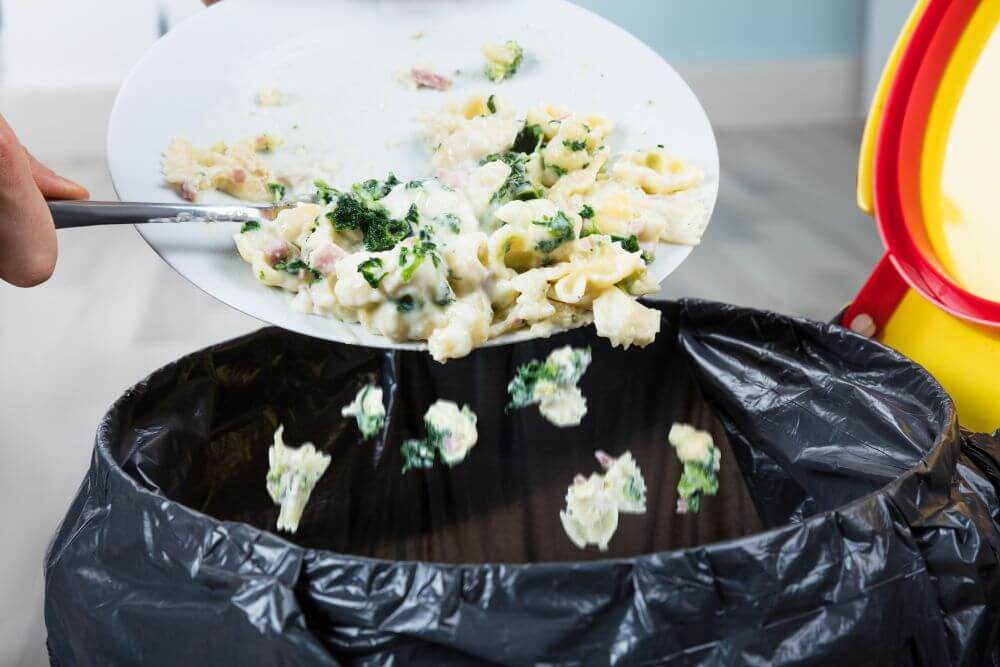Top 10 ways to reduce your food waste

So you know that wasting food is bad for the environment and is costing you money, but you may be wondering how you actually reduce your food waste.
Making a few small changes to how you shop, store and cook your food can make a huge difference and will reduce how much food you waste, and save you money at the same time.
These are Love Food Hate Waste’s top 10 tips to reduce your food waste:
1. Store your bread in the freezer
Kiwis throw away 20 million loaves of bread every year, mostly because it has gone stale or mouldy. There’s a simple way to fix that – keep your bread in the freezer instead of the pantry and it will stay fresh and mould free.
2. Eat your leftovers
If you’ve made too much, don’t throw away the leftovers. Even if it is just a small amount, it’s worth popping them in the fridge for later. Check out our delicious recipes for turning small amounts of leftovers into a meal.
3. Keep bananas out of the fruit bowl

If bananas are kept in the fruit bowl they ripen faster due to the ethylene gas released by fruits such as apples and pears. Once bananas are ripe they then produce ethylene gas which ripens other fruit. Keep bananas out of the fridge and away from other fruits. If they have gone too brown, pop them into the freezer and then use them for one of these recipes.
4. Store potatoes and onions away from each other
While it may be convenient to store potatoes and onions together, as they both like cool, dark conditions, storing them together will cause them to sprout faster. Keep your potatoes in your pantry and your onions somewhere else.
5. Plan your meals, make a list

By knowing exactly what your family will be eating for the coming meals, you’ll be able to buy only the food you need. Make sure you check your cupboards, fridge, and freezer before you make your meal plan and shopping list so you can use up what you already have.
6. If you can, shop more often
By going to the supermarket more regularly, you can buy fresh produce in smaller quantities which means it will be fresher for when you eat it. You’re also less likely to buy “just in case” items which you may not end up eating before they go off.
7. If in doubt, freeze your food
Freezers work like a giant pause button, preserving the quality of food almost indefinitely. If you’re not sure when you are going to eat something, freeze it, then it will be there when you need it.
Think it can’t be frozen? Think again. Almost everything can be successfully frozen, with the exception of vegetables with high water content like lettuce and cucumber.
8. Don’t peel your produce
Peeling vegetables (and many fruits) is a waste of food, time, money, fibre and nutrients. You may not think those few potato skins make a difference, but collectively in New Zealand we throw away 13,658 tonnes of vegetables peelings and 986 tonnes of fruit peelings every year.
You don’t need to peel most of your produce, instead just wash your fruit and vegetables before eating them to remove any dirt. If you do have potato peels, try making these crispy potato skins.
9. Know what dates are important
Knowing the difference between use by and best before dates will help you throw away less food. Food can be safely eaten past a best before date, providing there is no sign of spoiling. On the other hand, food should not be eaten after its use by date, unless it was frozen beforehand.
10. If you can’t eat it, give it to someone who can
Maybe you have leftover birthday cake, a tree brimming with citrus or a bottle of milk you’re not going to use before you go on holiday. Before you biff it, ask if there is someone else who may want it. Could you give the cake to a friend, ask your neighbour if they would like some fruit and take the bottle of milk into the office?
On a wider scale, there are other places that you can donate food. For packaged food, try food banks or the Auckland or Christchurch Community Fridges. For cooked food, look at social networks like Meals for Mums or The Social Pantry.


